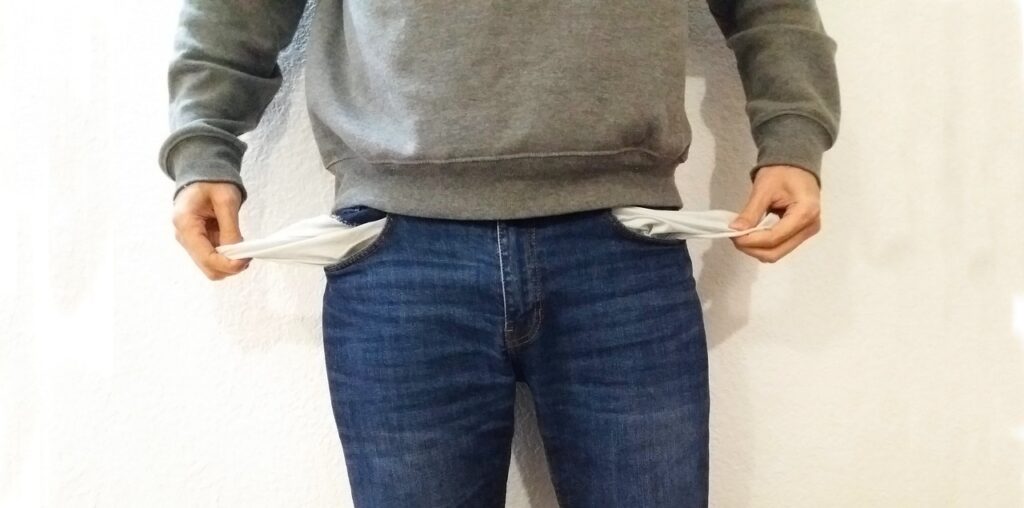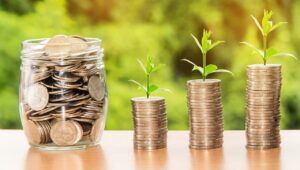How to become debt free?
Debt can be a major burden, both financially and emotionally. It can restrict your ability to make important purchases, save for the future, and build wealth. Fortunately, there are steps you can take to pay off debt and improve your financial situation. In this blog post, we’ll discuss the benefits of getting out of debt and how to get started on the journey towards financial freedom.

Debt can be a major burden, both financially and emotionally. It can restrict your ability to make important purchases, save for the future, and build wealth. Fortunately, there are steps you can take to pay off debt and improve your financial situation. In this blog post, we’ll discuss the benefits of getting out of debt and how to get started on the journey towards financial freedom.
Being under debt is a difficult situation to face, as it can be overwhelming and can impose a major burden on one’s financial standing. Trying to get rid of this debt as quickly as possible is recommended, however, it may not always be easy to do so without hampering one’s credit score. When looking for ways to free oneself from debt, it is important to consider the effects that might follow the chosen solution, so one does not end up causing more damage than good.

From reaching out for professional help to budgeting expenses carefully and cutting off unnecessary costs where possible, there are various steps that can be taken in order to reduce or even completely eliminate debts.
Personal Financial Management
Good personal financial management habits are essential for maintaining a comfortable lifestyle, avoiding costly debts, and achieving long-term wealth. Creating and following a budget that allows for saving as well as spending can facilitate both short and long-term goals. Planning ahead by setting aside money in an emergency fund can help to cover any unexpected costs without quickly piling up debt. Additionally, understanding credit and paying bills on time is essential to improving credit scores and establishing financial freedom. By practicing these habits regularly, one can be sure to maintain a healthy financial status with minimal levels of debt.
Good financial management habits will pay off even after you have become debt free. So there is never an excuse to slack off on your personal finances.
Make a plan of action
Coming up with a plan of action is key to getting out of debt quickly and efficiently. Here are some points that can help you get started
- Create a budget: The first step in getting out of debt is to understand where your money is going. Create a budget that tracks your income and expenses, and look for areas where you can cut back.
- Prioritize debts: Make a list of all your debts, including the interest rate, minimum payment, and balance for each. Prioritize the debts with the highest interest rates first, as these will cost you the most in the long run.
- Increase income: Look for ways to increase your income, such as getting a part-time job, selling unwanted items, or renting out a room in your home.
- Pay more than the minimum: When making payments on your debts, always pay more than the minimum required. Even an extra $20 a month can make a significant difference over time.
- Avoid taking on new debt: While working on paying off your existing debts, avoid taking on any new debt. This means not using credit cards and avoiding loans. Most importantly avoid payday loans like the plague!
- Be patient and persistent: Getting out of debt takes time and effort. Be patient, stay persistent and stay committed to your plan.
- Consider debt consolidation or credit counseling: If you’re having trouble making your payments or managing your debt, consider consulting a non-profit credit counseling agency or researching debt consolidation loan options.
- Get a financial advisor: If the situation is too complex and you are not able to do it on your own, you can seek help from a financial advisor who can guide you to make a personalized debt elimination plan.
Challenges of Getting Out of Debt
Unfortunately, getting out of debt isn’t always easy—it requires discipline and hard work. You may need to make some lifestyle changes such as cutting back on spending or taking on additional jobs in order to free up funds for repaying debts faster. Additionally, due to compounding interest rates it may seem like progress is slow at first. The key is to stay focused on the big picture and keep chipping away at those debts until they are paid off entirely.
Investing the Savings
Once you have reduced expenses enough that there’s money left over each month after bills have been paid and necessary everyday items purchased, it’s time start investing these funds wisely so that they are working for you rather than against you (i.e., accruing interest through loans). Consider building an investment portfolio using stocks or mutual funds; taking advantage of tax breaks and incentives; understanding risk tolerance; and staying aware of market volatility—all with the aim of growing wealth over time instead of just breaking even or losing money through bad investments,.
Conclusion
Getting out of debt is a long and difficult process, but it can be done with dedication, discipline and the right financial plan. It requires making tough choices such as cutting back on spending or taking on additional jobs in order to free up funds for repaying debts faster. Additionally, due to compounding interest rates progress may seem slow at first; however, staying focused on the big picture will help you chip away at those debts until they are paid off entirely. Once that goal has been achieved, investing your savings wisely can ensure that your money works for rather than against you by growing wealth over time through smart investments. With these steps one can become financially independent and secure their future!







